Iran vows revenge for Israel’s walkie-talkie attack on Hezbollah members in Lebanon
There are fears of an all-out war as Israeli troops move north and Iran plots a move to avenge the deaths of Hezbollah members killed in a dual wave of blasts.

World
Don't miss out on the headlines from World. Followed categories will be added to My News.
Iran has vowed revenge for Israel’s dual wave of walkie-talkie and pager blasts which saw its proxy Hezbollah targeted leaving 37 people dead and 2,931 injured in Lebanon.
Following Wednesday’s attack where dozens of walkie-talkies blew up in Lebanon – a day after blasts targeting the pagers of Hezbollah members killed 12 people and wounded thousands - Israel moved thousands of troops to the north of the country as analysts believe it could be set to invade Lebanon.
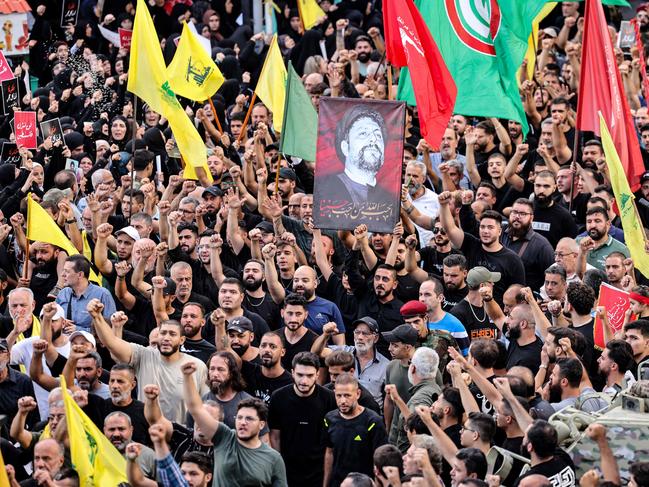
Iran accused Israel of “mass murder” and said it “reserves its rights under international law to take required measures deemed necessary to respond.”
Lebanon’s Foreign Minister Abdallah Bou Habib feared the worst, telling CNN the latest tension could be “an introduction to war”.
“It’s a scary moment and we are afraid (of) coming to war, because we don’t want a war,” he said.
The Turkish government also pointed the finger at Israel, with foreign minister Hakan Fiden saying the “escalation in the region is alarming”.
“We see Israel mounting its attacks towards Lebanon step by step. We have come to a point where these operations carried out by Israel have become increasingly provocative,” he said on Thursday.
Turkey is now reviewing its measures to secure the communication devices used by its armed forces following the deadly blasts in Lebanon.
FOLLOW UPDATES BELOW:
DUAL-WAVE BLASTS FOCUS OF ISRAEL’S SECRET PLAN
The simultaneous detonation of low-tech devices held by Hezbollah operatives in Lebanon over two days was the end-point of an Israeli intelligence plan more than two years in the making, it has emerged.
A day after hundreds of pagers exploded in Lebanon, killing at least 12 people and wounding up to 2800, hand-held walkie talkies also spontaneously detonated, killing at least 20 people and wounding more than 450 others.
Hezbollah was quick to accuse Israel of detonating the devices remotely, but what was not immediately known was that the covert operation began in 2022, with the plotters biding their time until this week.
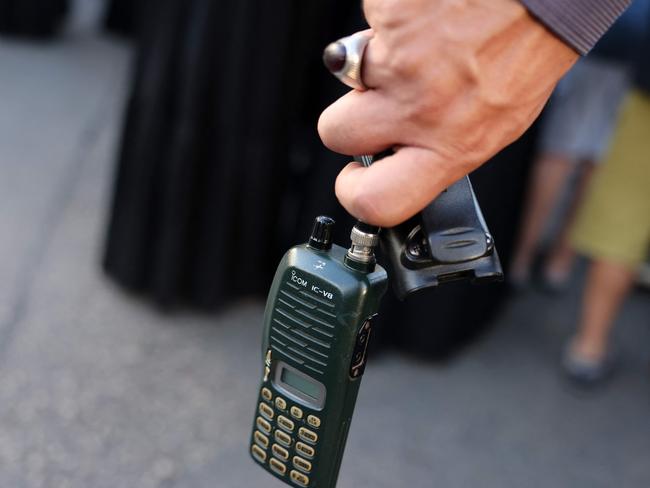
According to an investigation by The New York Times, based on defence and intelligence agency sources, Israel planned the dual-wave attack by setting up a phantom technology company to distribute the pagers and walkie-talkies to Hezbollah.
The Hungary-based company, BAC Consulting, was contracted to the Taiwanese technology company Gold Apollo to produce the innocuous-looking explosive items, but the subterfuge was so sophisticated the company also produced normal pagers and walkie-talkies for other clients.
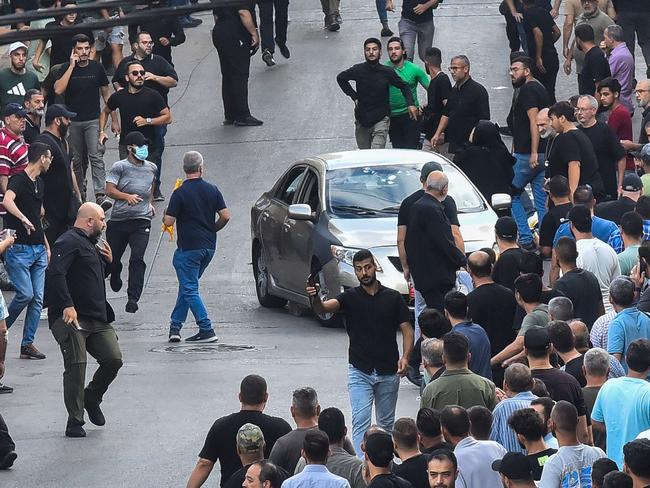
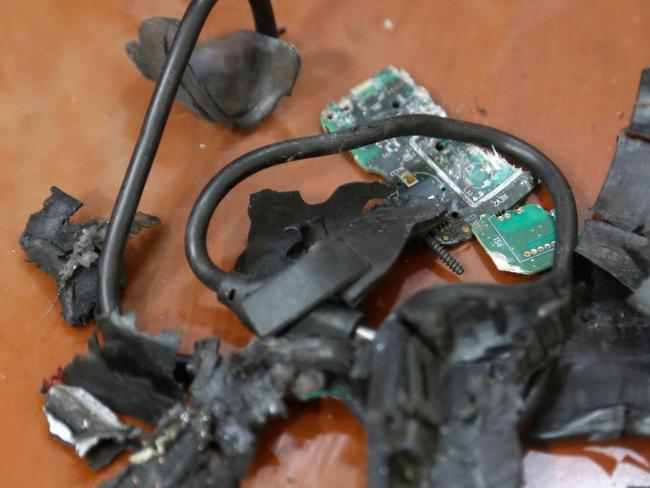
According to the New York Times report, the scheme also utlised Hezbollah’s security concerns against it, by focusing on tampering with low-tech devices just as the terror group leadership started telling members to stop using their mobile phones, as they could be used to pinpoint their location.
The sources quoted by the Times said the explosive devices, which were distributed in Lebanon from summer 2022, were knows as “buttons” within itelligence circles, and were powered by just a few ounces of explosive material contained in their casings.
At least two other shell companies were created as part of the plot, the Times reported.
WAR ENTERS ‘NEW PHASE’: ISRAEL STATES
Lebanon’s communications ministry said the walkie-talkies used by Hezbollah operatives that exploded killing at least 20 people and injuring more than 450 others were a discontinued model made by the Japanese firm ICOM.
The IC-V82 radios were not supplied by a recognised agent, were not officially licensed and had not been vetted by the security services, the ministry said.
ICOM has not made a comment on the matter. However on its website it says the IC-V82 has been discontinued, and almost all models in current circulation are counterfeit.
Photos circulating on social media, claiming to show some of the exploded devices, bear markings consistent with the IC-V82, a CNN analysis found.
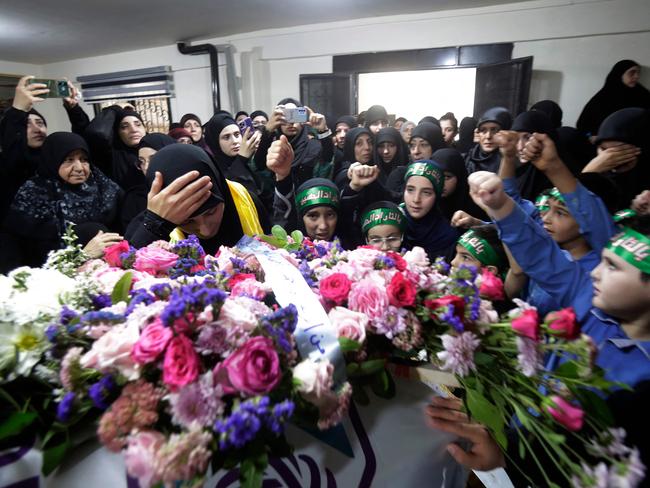
It comes as Israel said its war had entered a “new phase” with the “centre of gravity” moving north, where Israel shares a border with Lebanon.
Israel’s defence minister, Yoav Gallant, said in reference to Israel’s border with Lebanon: “The centre of gravity is moving northward.” “We are at the start of a new phase in the war”, he said.
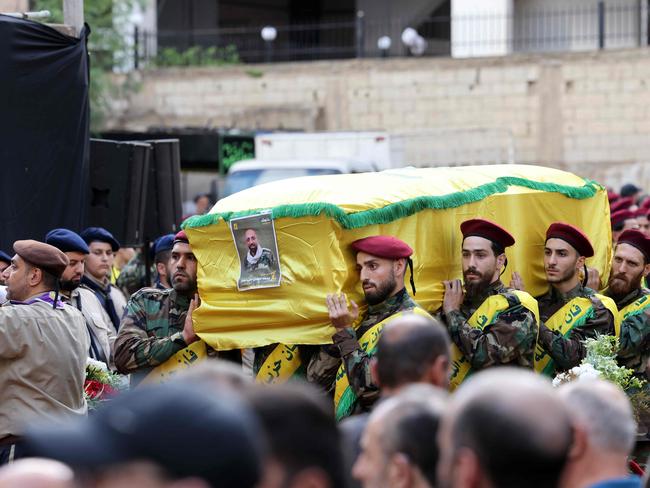
ISRAELI’S RECEIVE MYSTERIOUS TEXT
Israeli authorities are looking into whether text messages telling Israelis to immediately enter their bomb shelters were sent by Iranian-linked actors, according to the Kan public broadcaster.
The Israel Defense Force says it did not send the “emergency warning” that reached thousdans of Israeli’s.
ISRAEL ‘SPED UP’ PAGERS ATTACK OVER PLOT FEARS
It comes amid claims Israeli officials moved to detonate pagers carried by Hezbollah operatives over concerns that the terror group might have uncovered their plot.
Sources told Axios that Mr Netanyahu and his officials gave the go-ahead for the co-ordinated attack when intelligence briefings in recent days suggested Hezbollah might have detected the explosives allegedly placed inside their pagers.

Additional sources claimed the decision to launch the follow-up attack, which saw thousands of Hezbollah walkie-talkie radios explode, was also brought forward over concerns that the terrorists would ditch the devices following the shock pagers attack, Axios reported.
HUNGARY DENIES PAGERS FACTORY CLAIM
The AR-924 pagers that were detonated on Tuesday were all the latest models acquired by Hezbollah five months ago and allegedly manufactured in Budapest, according to a statement released by Gold Apollo — a Taiwanese firm that authorised the use of its brand on the pagers.
Hungarian officials however, deny the allegations, saying it has no such manufacturing facility in the country.
“Authorities have confirmed that the company in question is a trading intermediary, with no manufacturing or operational site in Hungary,” government spokesman Zoltan Kovacs said in a statement.
“The referenced devices have never been in Hungary,” he added.
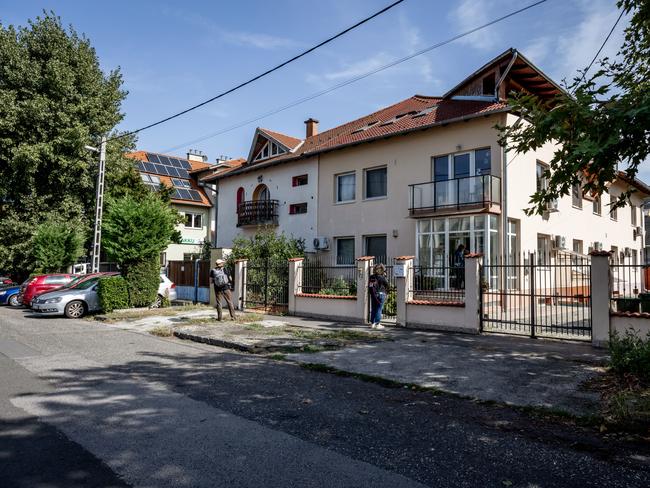
Israeli Mossad agents allegedly hid explosive material in the Taiwan-made Gold Apollo pagers before they were imported to Lebanon, The New York Times reported, citing US and other officials briefed on the operation.
The material was implanted next to the battery with a switch that could be triggered remotely to detonate.
The exploding pagers were then detonated by a message impersonating the leaders of the group on Tuesday afternoon, officials said.
Following the attack, The Israeli Defense Forces said Hezbollah fired a 10 rocket barrage across the border, hitting open areas in northern Israel.
The Iran-backed terrorist group has vowed to retaliate against Israel for its alleged role in the communication device explosions.
“The resistance will continue today, like any other day, its operations to support Gaza, its people and its resistance which is a separate path from the harsh punishment that the criminal enemy (Israel) should await in response to Tuesday’s massacre,” a statement from Hezbollah read.
“This is another reckoning that will come, God willing,” the group added.




